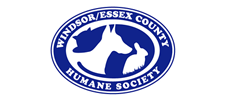Session G: Animals and Social Work: Examining barriers to inclusion of knowledge of Human Animal Relations in social work practice in Ontario and thinking about trans-species social justice.
Sub-theme
Practice
Keywords
Social Work, Critical Animal Studies, Human Animal Relations, Trans-Species Social Justice
Start Date
12-10-2018 4:30 PM
End Date
12-10-2018 5:45 PM
Abstract
Animals are increasingly being recognized as important family members and attachment figures in the lives of humans. Currently, over half of Canadian households include companion animals, making it very likely that social workers already work with individuals who have valued relationships with animals and consider them trans-species family members. Additional evidence of health benefits of animal-human interactions and relationships throughout the life-course warrants further consideration and more in-depth understanding of what social work practitioners know and do in relation to animal-human connections.
However, studies conducted in the United States (Risley-Curtiss, 2010) and recent surveys in Nova Scotia, Saskatchewan, Manitoba and Alberta (Chalmers et al., 2015; Hanrahan, 2013) found significant gaps between social work practice and education around utilizing knowledge related to Human-Animal Bond/ Human-Animal Relations/Human-Animal Interactions. This paper reports on an online study conducted in Ontario, building on the above mentioned Canadian and US surveys, to explore what social workers in Ontario know and are doing around inclusion of animal-human relationships in their practice. A unique feature of the Ontario survey is its inclusion of a Critical Animal Studies perspective.
Two hundred and twenty-four registered social workers (RSWs) in Ontario who are currently employed in social work and related fields responded. Analysis of the survey data is underway. Preliminary results indicate that most social workers currently are not including animals or knowledge of Human Animal Relations in their practice or are unsure how to do so, as previous surveys found. Lack of understanding of how to include Human-Animal relations in practice has serious implications for social work. Importantly, lack of general awareness also suggests lower awareness of intersectional oppression of animals and humans and failure to address trans-species social justice (justice beyond humans). Preliminary results also indicate two thirds of the respondents have considered including animals in their practice but currently do not, due to various barriers and concerns such as workplace policies relating to risk to humans. The presentation will focus specifically on social workers’ qualitative responses provided and examine barriers to inclusion of knowledge of Human Animal Relations in their practice, using a Critical Animal Studies perspective to explore possibilities of moving toward trans-species social justice. The paper aims to contribute to better understanding of challenges social workers face in incorporating knowledge of Human Animal Relations in social work practice and policy development.
Session G: Animals and Social Work: Examining barriers to inclusion of knowledge of Human Animal Relations in social work practice in Ontario and thinking about trans-species social justice.
Animals are increasingly being recognized as important family members and attachment figures in the lives of humans. Currently, over half of Canadian households include companion animals, making it very likely that social workers already work with individuals who have valued relationships with animals and consider them trans-species family members. Additional evidence of health benefits of animal-human interactions and relationships throughout the life-course warrants further consideration and more in-depth understanding of what social work practitioners know and do in relation to animal-human connections.
However, studies conducted in the United States (Risley-Curtiss, 2010) and recent surveys in Nova Scotia, Saskatchewan, Manitoba and Alberta (Chalmers et al., 2015; Hanrahan, 2013) found significant gaps between social work practice and education around utilizing knowledge related to Human-Animal Bond/ Human-Animal Relations/Human-Animal Interactions. This paper reports on an online study conducted in Ontario, building on the above mentioned Canadian and US surveys, to explore what social workers in Ontario know and are doing around inclusion of animal-human relationships in their practice. A unique feature of the Ontario survey is its inclusion of a Critical Animal Studies perspective.
Two hundred and twenty-four registered social workers (RSWs) in Ontario who are currently employed in social work and related fields responded. Analysis of the survey data is underway. Preliminary results indicate that most social workers currently are not including animals or knowledge of Human Animal Relations in their practice or are unsure how to do so, as previous surveys found. Lack of understanding of how to include Human-Animal relations in practice has serious implications for social work. Importantly, lack of general awareness also suggests lower awareness of intersectional oppression of animals and humans and failure to address trans-species social justice (justice beyond humans). Preliminary results also indicate two thirds of the respondents have considered including animals in their practice but currently do not, due to various barriers and concerns such as workplace policies relating to risk to humans. The presentation will focus specifically on social workers’ qualitative responses provided and examine barriers to inclusion of knowledge of Human Animal Relations in their practice, using a Critical Animal Studies perspective to explore possibilities of moving toward trans-species social justice. The paper aims to contribute to better understanding of challenges social workers face in incorporating knowledge of Human Animal Relations in social work practice and policy development.




